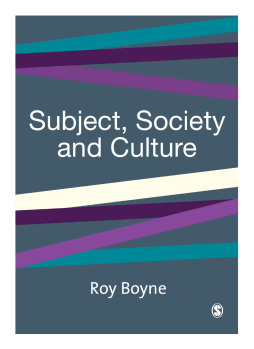
Additional Information
Book Details
Abstract
This book explores the relationships between visual culture, social theory and the individual. Visual culture has emerged as a central area of debate and research in contemporary sociology, yet the field is still underdefined. In particular, the relationship between visual culture and the individual remains obscure. Sociologists have insisted that all aspects of the individual are open to sociological explanation. The result is that the individual sometimes seems to have been theorized away from sociological understanding. Using a wide range of resources from Bourdieu's action theory and the contribution of actor network theory, through to the artistic explorations of Francis Bacon and Barnett Newman, this book shows how the concept of the individual is being reconstructed.
Table of Contents
| Section Title | Page | Action | Price |
|---|---|---|---|
| FOREWORD | |||
| ACRONYMS & TERMS | |||
| BACKGROUND | |||
| Rights-based Approaches | |||
| The RBA Learning Project | |||
| THE CASE STUDIES | |||
| ELEMENTS OF RBA PROJECTS | |||
| Thorough Analysis of Underlying Causes of Poverty, including Explicit and Ongoing Analyses of Power, Gender and Risk | |||
| Community-centered Development, including Building Sustainable Capacity to Claim Rights and to Drive Decision-making | |||
| Duty-bearers Engaged, Strengthened and Held Accountable | |||
| Advocacy for Sustainable Change in Policy and Practice | |||
| Alliance-building | |||
| Working at Multiple Levels | |||
| Focus on Groups that are Marginalized and Discriminated Against | |||
| Problems Framed as Rights Issues and Linked to International or National Standards | |||
| Conclusion | |||
| IMPACTS OF TRADITIONAL AND RBA PROJECTS | |||
| CATEGORIES OF RBA-ASSOCIATED IMPACTS | |||
| Effect Changes in Policy and Practice | |||
| Have Impacts at Multiple Levels | |||
| Affirm the Dignity of All Human Beings | |||
| Change Power Dynamics | |||
| Strengthen Civil Society to Claim Rights and to Hold Duty-bearers Accountable | |||
| Strengthen Peace and Personal Security | |||
| Open the Political Culture | |||
| Engender Greater Responsiveness, Responsibility and Accountability on the Part of Duty-bearers | |||
| Effect Fundamental and Sustainable Change | |||
| Conclusion | |||
| CHALLENGES AND NEXT STEPS IN THE JOINT LEARNING AGENDA | |||
| Adoption, Application and Learning | |||
| Monitoring and Evaluation | |||
| Conclusion | |||
| APPENDICES | |||
| A CASE STUDIES | |||
| A1 Ethiopia Make Trade Fair Coffee Campaign | |||
| A2 Guatemala Overcoming Racism and Discrimination through Active Participation by the Mayan People | |||
| A3 Bangladesh Locally Intensified Farming Enterprises and New Options for Pest Management | |||
| A4 Ethiopia Civil Society Capacity Strengthening | |||
| A5 Bangladesh Local Initiatives in Farmer Training | |||
| A6 Guatemala Economic, Political and Social Empowerment for Small Producers in Guatemala’s Central Highlands | |||
| A7 Ethiopia Rift Valley Irrigation | |||
| A8 Ethiopia Infrastructure Improvement/Urban Food-for-Work | |||
| B FACILITATOR’S GUIDE |
